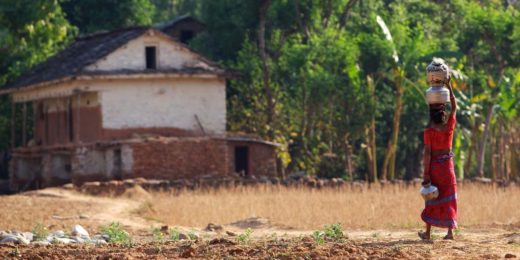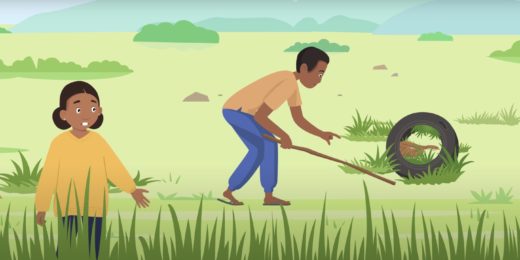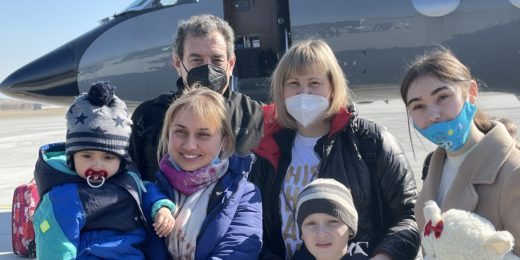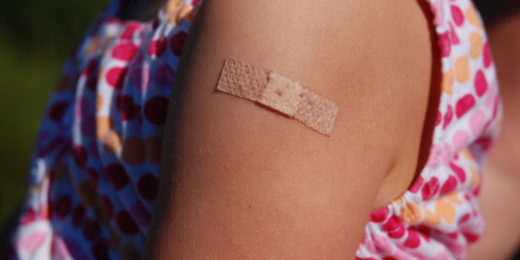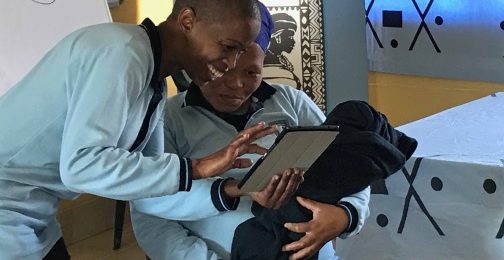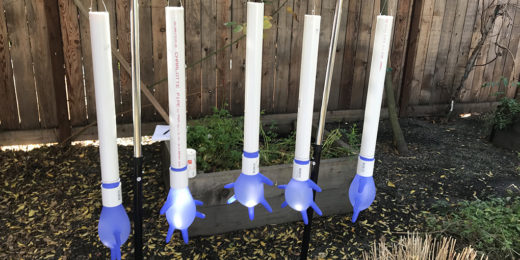The new guidelines focus on parents' role in the care of vulnerable babies, as well as low-cost, evidence-based therapies.
Category: Global Health
Stanford Medicine supports Ukrainian visiting scholars
To learn the latest in radiation oncology, Ukrainian scholars visit Stanford Medicine for three months — away from the rubble of the war.
Delivering free (tele)health care to Ukrainians
Students and physicians at Stanford created a program called Telehelp Ukraine to serve health care needs of those in Ukraine.
Screening for a deadly virus in livestock milk
Researchers at Stanford and in Kenya devised a system to monitor livestock milk for a deadly virus in an effort to aid public health.
Heat waves threaten health of outdoor laborers
As climate change spurs soaring temperatures, outdoor laborers, particularly those who are older, are threatened by new levels of heat.
Tackling typhoid, one finger prick at a time
Stanford infectious disease experts devise a way to use finger-prick blood samples from small groups to detect typhoid in large populations.
Video helps Eswatini residents avoid snake bites
A short video created by Stanford Medicine has helped people in rural Eswatini avoid and treat snake bites.
Stanford doctor helps pediatric cancer patients evacuate Ukraine
A Stanford doctor traveled to Poland to help pediatric cancer patients evacuate from Ukraine and receive care.
Fighting childhood infectious disease, lessons from COVID-19
Stanford Medicine pediatric infectious disease researcher describes her work in childhood infectious disease and lessons from the pandemic.
Changing infant care to improve newborns’ health in India
Modifying traditional infant massages led to more weight gain and fewer illnesses among newborns in a Stanford-led community study in India.
Can marketing strategies help increase vaccination rates?
Researchers at Stanford are exploring using traditional marketing strategies to help increase COVID-19 vaccine acceptance.
A new take on virtual education can promote breastfeeding
Stanford researchers find that "entertainment education" helps teach new mothers about the importance of breastfeeding.
Economic analysis busts telemedicine myths
Stanford researchers find that increased telemedicine does not raise costs of health care or jeopardize quality of care.
Wildfire smoke exposure raises risk for preterm birth
Exposure to wildfire smoke increases a pregnant woman's risk of giving birth three or more weeks early, a new Stanford study found.
Protecting health care workers in low-resourced Bangladesh
Stanford Medicine scholar turns time in Bangladesh during COVID-19 into a chance to improve health worker safety in low-resources countries.
Witness to Ebola, med student calls for more COVID-19 vaccines in Africa
Stanford medical student from Sierra Leone calls for urgent improvements in efforts to protect the people of African nations against COVID-19.







